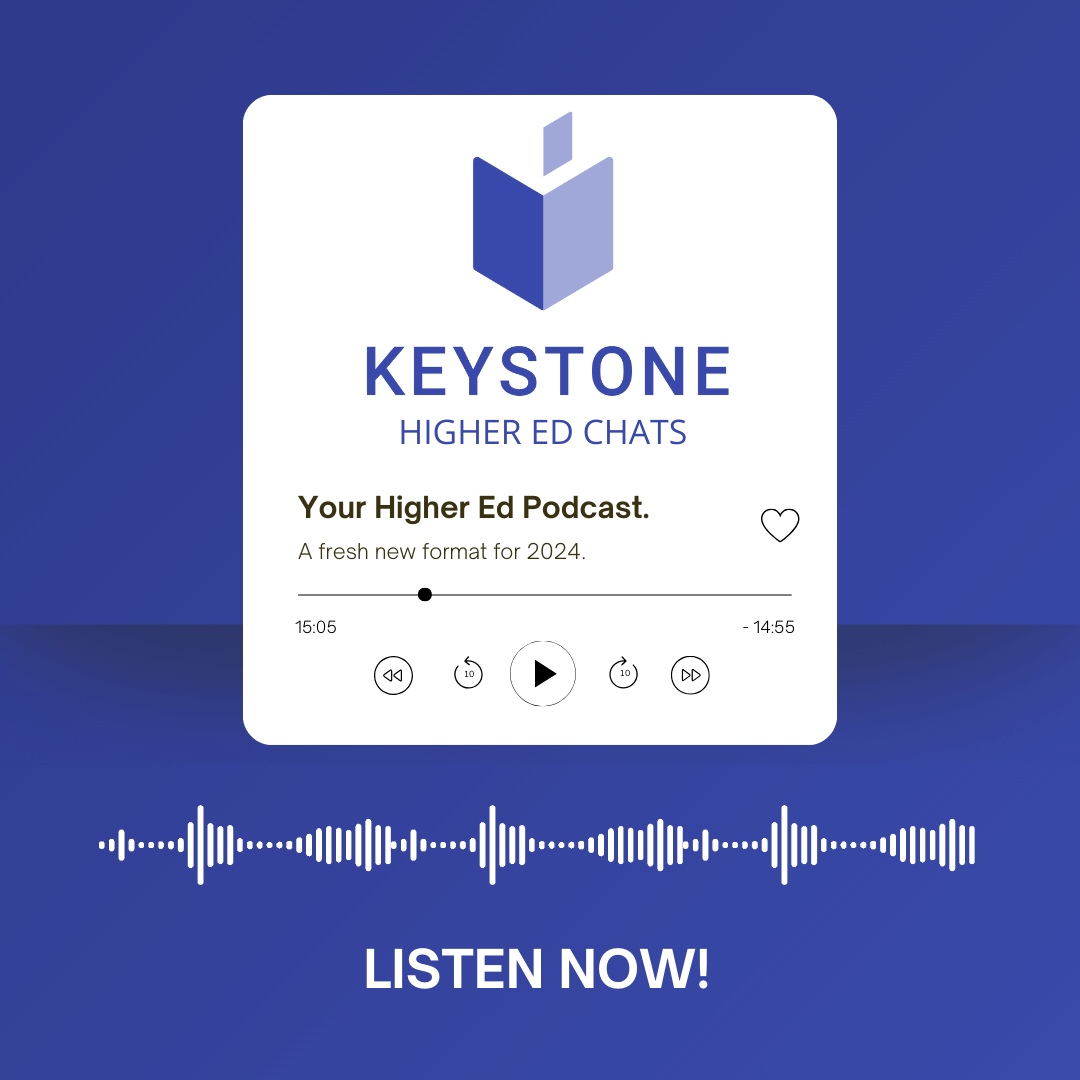- SERVICES
- HIGHER EDUCATION MARKETING
- ENGAGEMENT & ENROLLMENT MANAGEMENT
- STUDENT RECRUITMENT AGENCIES
- PROFESSIONAL EDUCATION & TRAINING
- WHO WE ARE
WHO WE ARE
Learn more about Keystone Education Group, including our leadership structure, why choose Keystone as your educational partner, and company press releases.
QUICK LINKS
- RESOURCES
RESOURCES
Find a range of helpful resources to help with your educational marketing. From on-demand webinars, reports & data, to customer testimonials and our downloadable media kit.
QUICK LINKS
- NEWS
- REQUEST A CALL

- Keystone Higher Education News
- Tech Skills and Setting Up Students for the Working World
The launch of the internet changed virtually every industry - fields once seldom integrated with technology soon depended on it. Changing tech and student trends also now shape higher education learning, and institutions should consider the tech tools students should know to prepare them for the working world in their fields.
Emerging technologies and budding industries often face problems when the incoming workforce is ill-prepared for the job. Blockchain companies, for example, have a hard time finding educated marketers that understand the technology enough to market it to consumers.
As we head into the throes of the 2020s and see new technologies emerge, here are some ways higher education institutions can adapt to accommodate their newest cohorts.
Business and communications students
How we conduct business and communicate have changed significantly over the last decade and will continue changing. Encourage professors to integrate popular communications tools to better prepare students and enhance their CV skills. Tools like Slack, Basecamp, and Notion are great for communications and are commonly used in workplaces around the globe.
Catering to emerging markets doesn’t necessarily mean updating programs with every change, but could mean working with innovators in relevant industries to enhance the curriculum and show students how their skills can be applied in the real world.
Also read: '6 Trends in Student Recruitment'
A lot of the curriculum surrounding new marketing fields was quickly outdated when social media became popular in the 2010s. Get ahead of these industries so students are better prepared going into the field, and establish your institution as a place that businesses can look toward for a future workforce.
Science and technology programs
Coding bootcamps and nano-degree programs have become popular in recent years for their ability to turn over a workforce in less than a year. These programs are great for students who want to learn a targeted skill like coding, but who cannot afford to go to a four-year institution or don’t feel they have the time to invest in a longer program.

Nano-degrees are also great for quickly changing industries as they can continue to integrate new developments into the curriculum. Adjust the curriculum to reflect current and emerging market trends so students can immediately enter their desired field with the current experience.
MIT, for example, offers courses on blockchain technology, and several of its professors have created blockchain products widely used in the industry today. They offer several programs, which have helped position the university as an innovator and powerhouse in tech.
Humanities
Many graduates in humanities face challenges in marketing their skills in the real world, and a 2018 article in The Atlantic discussed how students struggle to apply their education to their professional lives, which is something their program itself should give them the tools to do.
Many humanities students have widely applicable creative skills that can be valuable assets to the workforce, for example, art students can adapt their skills as designers if they have the right ''computer skills'.
Institutions should try and incorporate technology into their programs, regardless of the field of study. At some stage in their career, graduates will have to showcase their transferrable skills from higher ed to working life and institutions can set their graduates up with the best chance of career success through embracing technology in learning and teaching.
More about:
Related Tags
Just For You
Top Picks
Higher Ed Chats Podcast
Listen to the latest episodes of our Higher Ed Chats Podcast - new format for 2024. Hear from Higher Ed thought-leaders from around the world!

Webinar: Dos & Don'ts of Higher Ed Social Media
.png?width=500&name=Social%20Media%20Webinar%20March%2024%20Banners%20(3).png)
Join our live webinar on 27th March to hear from a panel of Higher Ed Social Media experts.
Subscribe
to get the latest news and updates





